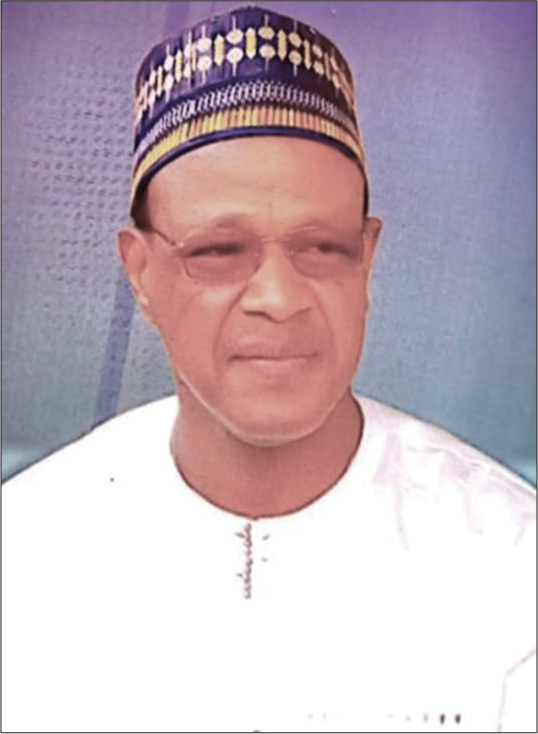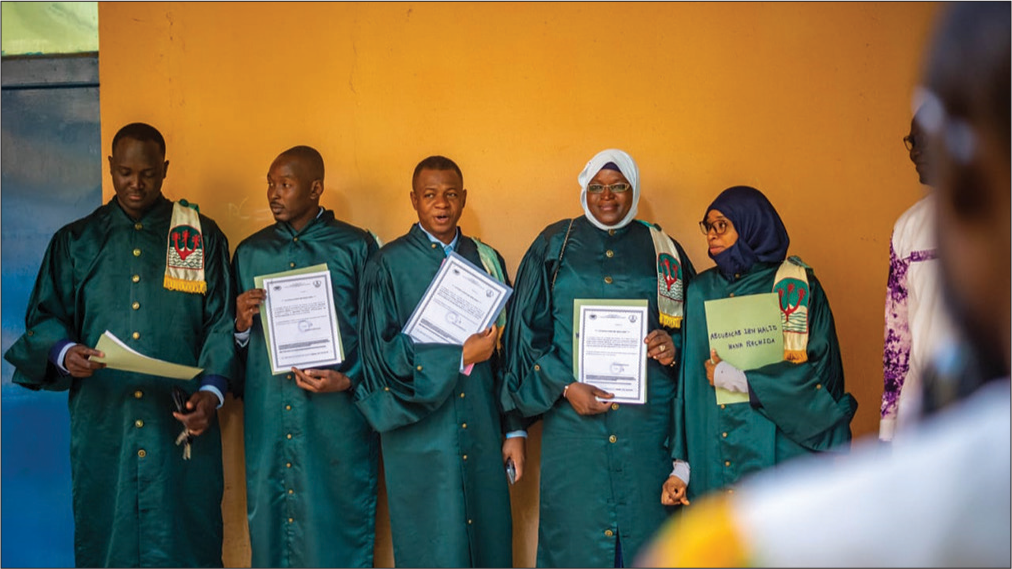- Centre Medical Chirurgical Obstetrical Cote d’Opale, Saint Martin Boulogne, France,
- Department of Neurosurgery, Faculty of Health Sciences, Abdou Moumouni University, Niamey, Niger.
Correspondence Address:
Gilbert Dechambenoit, Centre Medical Chirurgical Obstetrical Cote d’Opale, Saint Martin Boulogne, France.
Department of Neurosurgery, Faculty of Health Sciences, Abdou Moumouni University, Niamey, Niger.
DOI:10.25259/SNI_523_2023
Copyright: © 2023 Surgical Neurology International This is an open-access article distributed under the terms of the Creative Commons Attribution-Non Commercial-Share Alike 4.0 License, which allows others to remix, transform, and build upon the work non-commercially, as long as the author is credited and the new creations are licensed under the identical terms.How to cite this article: Dechambenoit G1, Kelani AB2. Professor Samuila Sanoussi, the fighter. Surg Neurol Int 07-Jul-2023;14:237
How to cite this URL: Dechambenoit G1, Kelani AB2. Professor Samuila Sanoussi, the fighter. Surg Neurol Int 07-Jul-2023;14:237. Available from: https://surgicalneurologyint.com/surgicalint-articles/12393/
Co-author
Professor Samuila Sanoussi is gone [
Niger is ranked last on the Human Development Index (2018). Prof Samuila Sanoussi demonstrated through his achievements that there is truth in the adage that faith moves mountains. Indeed, after neurosurgical training in Strasbourg (France) – where he could have stayed – he chose to return home to establish and develop the specialty for which he had great ambitions and also to get his compatriots out of the tragic precariousness socioeconomic situation that continues to overwhelm them. Belonging to the Christian minority in a majority Muslim country, he leads his party’s parliamentary group, demonstrating that in his part of the world, bruised and devastated by a war from another time, living together in harmony is free from religious differences. The honors bestowed on him by his country and the President of the Republic are a vibrant testimony to his legacy.
Holder of a chair, he performed his academic activities fully, as well as that of head of the neurosurgery department. The ravages of hydrocephalus following recurrent measles epidemics and the excessive cost of shunts led him to develop the “Niamey Valve” to make it financially accessible to many poor people. Chairman of the Ethics Committee at the Ministry of Health, he ensured compliance with the “primum non nocere” rule and the dignity of patients. His desire to promote neurosurgery led him to become actively involved in regional and global organizations. Concerned about the future, he established a local neurosurgical training center calling on the best international neurosurgeons to supervise his students. He granted me the honor of chairing the jury of the first promotion of six Nigerian neurosurgeons and I am grateful to him [
Prof. Samuila Sanoussi, with the sobriety and discretion of the people of the Sahel, was keen to protect his family from basic needs by investing in a private clinic which he patiently and methodically equipped to the highest standards (staff, biology, computed tomography scan, and magnetic resonance imaging). His care for his family was constant. During a congress in Hanover (Germany) which we attended together, his wife and he were constantly worried about whether the children had done their homework and constantly tried to reach them on the phone. Respect for traditional values made of respect for elders was reflected in his human relationships. The address to his parents when he was admitted to the professorship in 2010 testifies to this: “When the President of the Jury told me that I had been admitted, I immediately thought of my parents. I am lucky to have them alive at 80 and 75. In Africa, it is an advanced age! My parents cannot read, write or speak French, have never been to school and yet have great ambitions for their children’s studies.”
Samuila Sanoussi was a fighter. An example of the stature one must have to overcome the constant and even aberrant adversities that one encounters when one wants to make health and social equity triumph, particularly in our African nations where basic needs are glaring and a priority. The force that animated him must penetrate the younger generations so that they invest themselves with tenacity, vigor, and courage on the battlefield of social well-being.
Disclaimer
The views and opinions expressed in this article are those of the authors and do not necessarily reflect the official policy or position of the Journal or its management. The information contained in this article should not be considered to be medical advice; patients should consult their own physicians for advice as to their specific medical needs.







